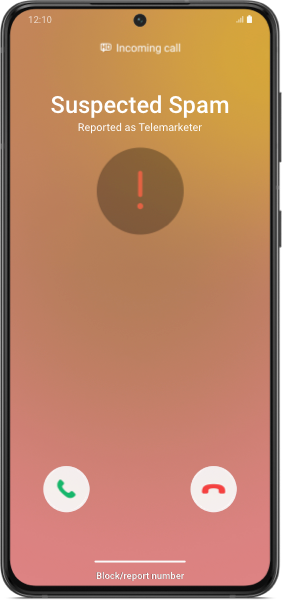Spam calls are one of the most common and irritating forms of unwanted communication. They can interrupt your day, waste your time, and even scam you out of your money. Whether they are robocalls, telemarketers, or fraudsters, spam callers can be hard to avoid and block. However, there are some steps you can take to reduce the number of spam calls you receive and protect yourself from their harmful effects.
What are spam calls and why do they happen?
Spam calls are unsolicited phone calls that are made for various purposes, such as selling products or services, collecting personal or financial information, or spreading misinformation. Spam callers often use spoofing techniques to disguise their real phone numbers and make it seem like they are calling from a legitimate or local source. They may also use automated systems or prerecorded messages to make large numbers of calls in a short time.
Spam calls happen because they are cheap and easy to make, and they can generate profits for the callers. Some spam callers are legitimate businesses that are trying to market their products or services, but they may not follow the rules or respect the preferences of the recipients. Other spam callers are scammers who are trying to trick or coerce the recipients into giving up their money or personal information, such as bank account details, passwords, or social security numbers.
How to identify and avoid spam calls?
The first step to stop spam calls is to identify them and avoid answering them. Here are some signs that a call may be spam:
- The caller ID shows a number that you don’t recognize or that is similar to yours.
- The caller ID shows a name or a company that you don’t know or that is vague or generic, such as “Customer Service” or “Private Number”.
- The caller asks you to press a button, say a word, or confirm your identity or information.
- The caller offers you a free gift, a prize, a refund, a loan, or a debt relief.
- The caller threatens you with legal action, arrest, fines, or account suspension.
- The caller sounds like a robot, a recorded message, or a foreign accent.
If you receive a call that matches any of these signs, you should hang up immediately and not engage with the caller. You should also not call back the number or follow any instructions that the caller gives you. Doing so may expose you to more spam calls, charges, or scams.
How to block and report spam calls?
The second step to stop spam calls is to block and report them. Blocking spam calls can prevent them from reaching you again, and reporting spam calls can help the authorities and the service providers to take action against them. Here are some ways to block and report spam calls:
- Use your phone’s built-in features. Most phones have options to block specific numbers, unknown numbers, or all calls from a certain area code. You can also use your phone’s do not disturb mode to silence all calls except from your contacts or favorites. You can find these options in your phone’s settings or in your phone’s call log.
- Use a third-party app or service. There are many apps and services that can help you block and identify spam calls, such as Truecaller, Hiya, Nomorobo, or RoboKiller. These apps and services use databases, algorithms, or crowdsourcing to filter out spam calls and warn you about them. Some of them are free, while others may charge a fee or require a subscription. You can find these apps and services in your phone’s app store or online.
- Use your carrier’s features or services. Some carriers offer features or services that can help you block and report spam calls, such as AT&T Call Protect, Verizon Call Filter, T-Mobile Scam Shield, or Sprint Premium Caller ID. These features or services may be included in your plan or available for an extra charge. You can contact your carrier or visit their website to find out more.
- Register your number on the National Do Not Call Registry. The National Do Not Call Registry is a free service that allows you to opt out of receiving telemarketing calls from legitimate businesses. You can register your number online at [donotcall.gov] or by calling 1-888-382-1222. However, this service does not stop illegal or spoofed calls, so you still need to be careful and use other methods to block and report them.
- Report spam calls to the authorities or the service providers. Reporting spam calls can help the authorities and the service providers to investigate and stop them. You can report spam calls to the Federal Trade Commission (FTC) online. You can also report spam calls to the Federal Communications Commission (FCC) online at [fcc.gov/complaints] or by calling 1-888-225-5322. You can also report spam calls to your carrier or to the app or service that you use to block them.

How to prevent spam calls in the first place
While it is important to know how to deal with spam calls, it is even more important to prevent spam calls in the first place. Here are some tips to help you avoid spam calls and improve your phone security:
- Do not share your phone number with strangers or on public platforms, such as social media, websites, or online forms. Only give your phone number to trusted people or organizations, and ask them how they will use it and who they will share it with.
- Do not answer calls from unknown or suspicious numbers, especially if they are from a different area code or country. If the call is important, the caller will leave a message or try to reach you through another channel.
- Do not respond to any requests or offers that the caller makes, such as pressing a button, saying a word, or providing your information. This may confirm that your number is active and lead to more spam calls or charges.
- Do not trust the caller ID or the caller’s name or voice. Spam callers can spoof their numbers or use fake names or voices to trick you into thinking that they are someone else, such as a friend, a family member, a government agency, or a company that you know.
- Do not agree to pay any money or fees over the phone, especially if the caller asks you to use a specific method, such as a wire transfer, a gift card, or a cryptocurrency. This may be a sign of a scam, and you may not be able to recover your money or dispute the charge.
- Do not click on any links or attachments that the caller sends you via text or email. This may expose you to malware, phishing, or identity theft. Only open links or attachments from trusted sources, and verify their authenticity before clicking on them.
Spam calls are a nuisance and a threat that can affect anyone who owns a phone. However, by following these steps, you can reduce the number of spam calls you receive and protect yourself from their harmful effects. You can also share these tips with your friends and family to help them stop spam calls as well.



